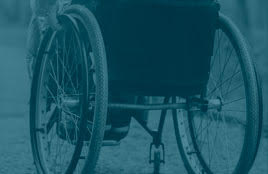Do you or someone you know ride a commuter train to work? If so, the following information can help keep you safe and calm in the event of an emergency. A scary incident occurred just a couple of weeks ago when a subway train in Queens, New York derailed, severely injuring 19 passengers and leaving 1,000 passengers stranded for hours underground.
A train derailment can be an extremely terrifying event, particularly because there is nothing you the passenger can do to prevent one from happening. Derailments occur for a number of reasons including excessive speed, broken/misaligned rails, mechanical failures, engineer problems, etc. If you are a passenger on a train that derails you should follow these steps:
- Stay calm and listen carefully to the announcer on the PA system.
- Look for the closest and safest emergency exit.
- As you exit the train, stay clear of the train tracks.
- Call 911 if no one else has done so.
- Maintain a safe distance from the train/subway car.
- If possible, document the scene (take photographs, gather the contact information of witnesses, etc.).
- Go directly to the hospital.
- Keep a journal.
- Conduct an Internet search and print out as many articles about the derailment as possible.
While it is understandable that distressed passengers of derailed trains often prefer to immediately rush to their loved ones or the safety of their own homes, it is important that they instead go directly to the hospital. Train derailments can and often do have a serious impact on the human body. The most common injuries resulting from train derailments are whiplash, back sprains and injury to the spinal column. Failure to seek immediate medical attention can not only lead to health complications, but can also have a negative impact on your legal case, as insurance companies will often assume that if you did not go to the hospital right away that you are not hurt.
Furthermore, if you do seek medical attention, but there is a time lapse between the accident and your hospital visit, the insurance company may infer that you injured yourself doing some other activity in the interim. Bottom line: If you have any discomfort, GO TO THE HOSPITAL IMMEDIATELY.
Though it may seem like extra work, the importance of keeping a journal cannot be stressed enough. We all have a mechanism in our brain that suppresses horrific events from our memory bank. It is human nature to forget specific details as time goes by. A journal will help maintain the clarity of the event in your mind.
To find out more information on train derailments, visit www.ntsb.gov.






